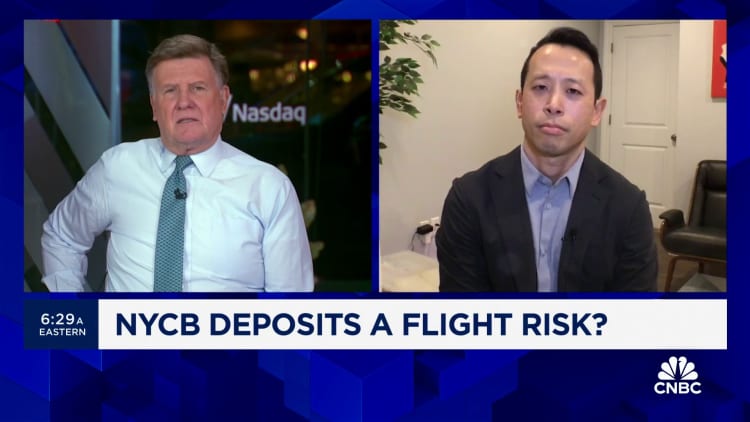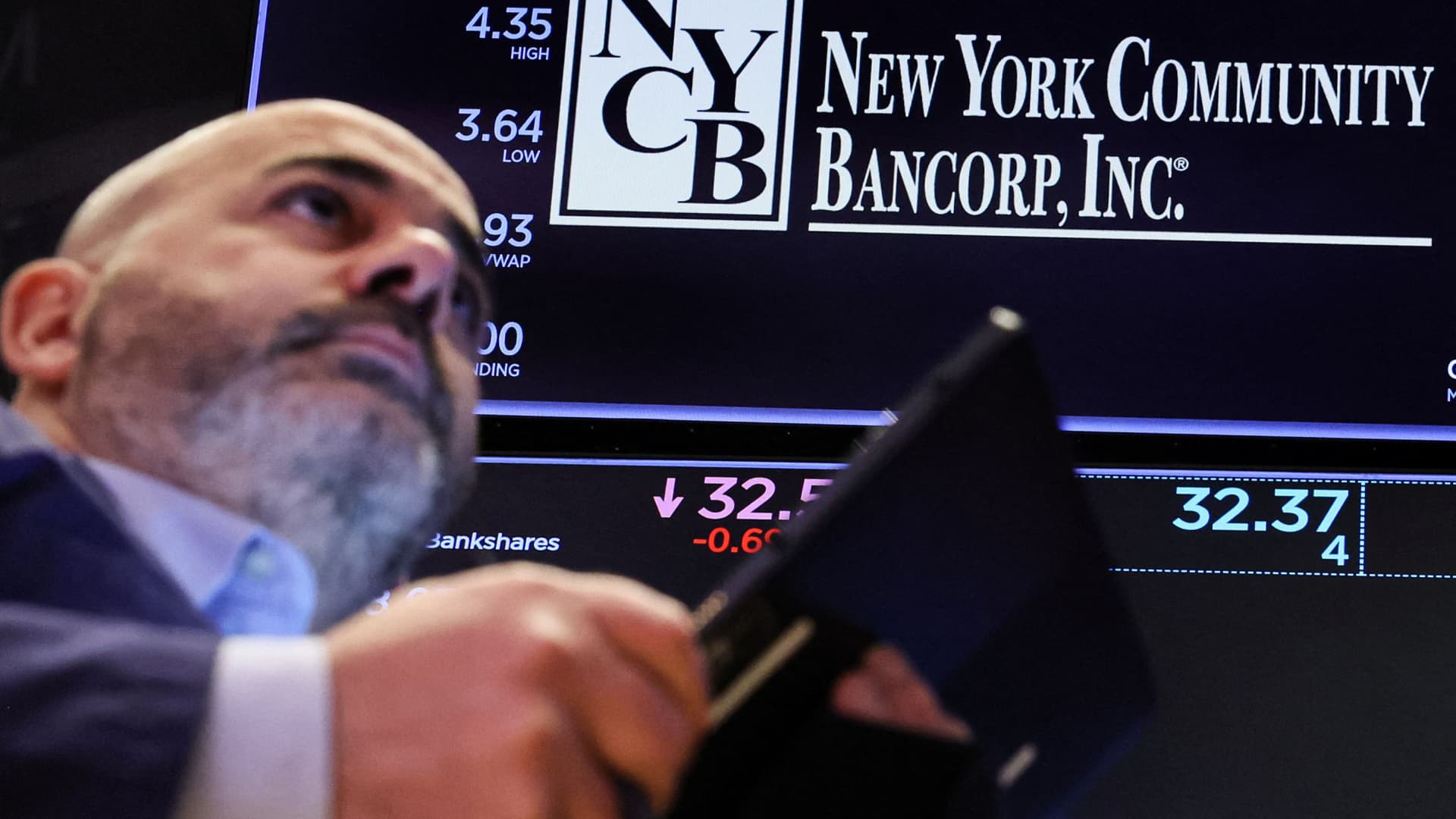Struggling regional lender New York Community Bancorp announced a $1 billion capital raise and a leadership shakeup on Wednesday, headlined by former Treasury Secretary Steven Mnuchin, leading to a sharp rebound for its stock.
NYCB has agreed to a deal with several investment firms including Mnuchin’s Liberty Strategic Capital, Hudson Bay Capital and Reverence Capital Partners for over $1 billion in exchange for equity in the regional bank, according to a press release Wednesday afternoon.
Mnuchin will be one of four new members the bank’s board of directors as part of the deal. Joseph Otting, former comptroller of the currency, is also joining the board and taking over as CEO.
The stock jumped sharply after the announcement, but trading was highly volatile. Shares were briefly halted up nearly 30% for the day. It gave back some of those gains when trading resumed and was last up about 4% for the day after more halts.
Prior to the press release, the stock was down 42% on the day, amid reports from Reuters and the Wall Street Journal that NYCB was exploring a capital raise.

Shares of NYCB fell sharply on Wednesday.
The stock was below $2 per share at its lowest point on Wednesday, the latest negative milestone for a company that began January above $10 per share.
The cash infusion is the latest development in a turbulent start to the year for NYCB. The bank disclosed in late January that it was dramatically raising the allowance for potential loan losses on its balance sheet, with its exposure to commercial real estate being a potential issue. That was followed shortly by Moody’s Investors Service downgrading the bank’s credit rating to junk status, and NYCB naming former Flagstar bank CEO Alessandro DiNello as executive chairman.
Then last week, NYCB disclosed that it had “identified material weaknesses in the company’s internal controls related to internal loan review” and announced that DiNello was taking over as CEO, for what proved to be a brief tenure.

The questions surrounding NYCB are reminiscent of those that swirled around Silicon Valley Bank, Signature Bank and First Republic before all three failed in the spring of 2023. They were among several regional banks that struggled as higher interest rates pushed down the value of older Treasury holdings and led some depositors to move their accounts elsewhere.
With the U.S. economy continuing to show surprising strength and inflation still above the Federal Reserve’s 2% target, traders have been dialing back expectations for interest rate cuts this year. The higher-for-longer rate environment could keep pressure on the banks themselves and on commercial real estate, which is a key business for NYCB and many other regional lenders.
The struggles for NYCB may have caught regulators off guard as well as investors. The regional lender acquired much of Signature Bank out of receivership from the Federal Deposit Insurance Corporation last March.
Don’t miss these stories from CNBC PRO:













